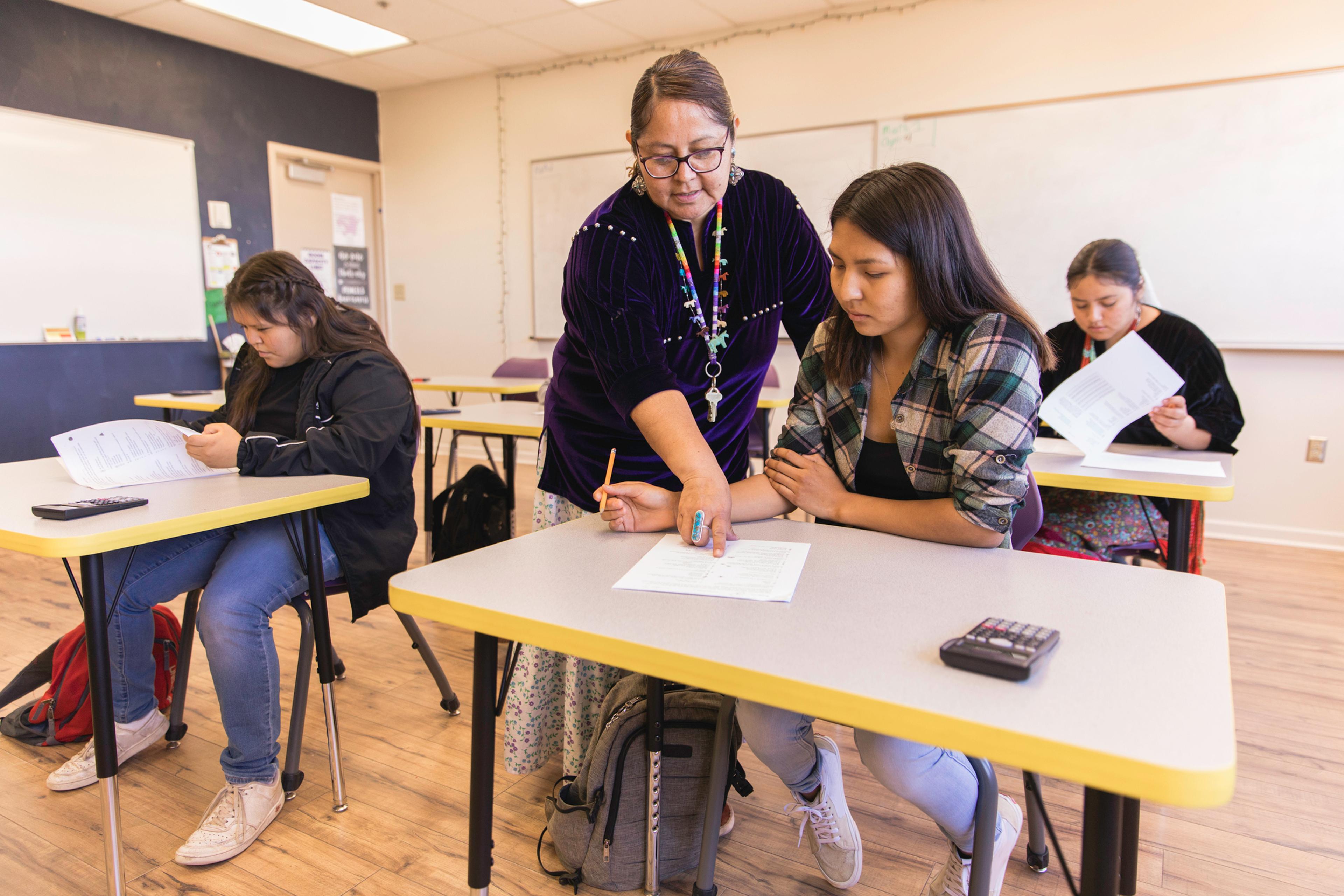Program Helps Michigan Schools Prevent Suicide
Amy Barczy
| 4 min read
Amy Barczy is a former brand journalist who authored...

During the pandemic, suicidal ideation increased among high school students – and teen girls were particularly impacted. Forty-two percent of high school students surveyed in 2021 said they experienced persistent feelings of sadness or hopelessness, according to the U.S. Centers for Disease Control and Prevention.
A statewide program is helping Michigan K-12 schools train their staff to help identify the signs a student is struggling with their mental health and get them the help they need.
Free resources for schools
Building Healthy Communities: Step Up for School Wellness is a free program and available to all Michigan schools. It offers a menu of healthy eating, physical activity and mental health and well-being resources that schools can choose from to help make their school environment healthier and create a culture of wellness.
Among them are adolescent suicide prevention training courses, developed by Blue Cross Blue Shield of Michigan, the Michigan Elementary and Middle School Principals Association and Michigan Virtual. The courses provide school administration and staff with the tools to identify the signs of students who are at risk of suicidal ideation, suicidal gestures, or completed suicide, and offer action steps to prevent and address these serious concerns.
The response to the program has been powerful.
“Teachers that have been through this training are able to see signs that students are struggling and then refer them to the social worker or school social worker, who may then refer them to a psychologist or psychiatrist, or get them to the hospital for treatment,” said Paul Liabenow, executive director of the Michigan Elementary and Middle School Principals Association. “The real value in the BHC: Step Up for School Wellness is to make people aware. Not to train them to be psychologists to treat the student’s illness, but to see the need and begin to provide the intervention.”
Thousands of teachers and educators have completed the training, as well as training on social emotional learning through the BHC: Step Up for School Wellness.
Building Healthy Communities: Step Up for School Wellness is supported by multiple statewide organizations, including Blue Cross Blue Shield of Michigan, Michigan Department of Education, Michigan Department of Health and Human Services, Michigan Elementary and Middle School Principals Association, Michigan Fitness Foundation, Michigan Recreation and Park Association, Michigan State University Extension, Michigan Virtual, OK2SAY, SHAPE Michigan, and the United Dairy Industry of Michigan.
A proactive approach to improving mental health
Because of increasing rates of suicides among young people, educators are being more proactive in how they approach student mental health.
“Teachers and educators are seeing the need and trying to identify the solutions,” Liabenow said. “They’re speaking openly about suicide and suicide prevention and intervention – as opposed to being something no one wanted to broach or talk about publicly. We’re being more aware of watching for signs of students struggling.”
The BHC: Step Up for School Wellness is different than your typical program or grant. Schools have the flexibility to choose the program resources that are most needed in their building. This personalization helps schools address their specific gaps and needs and produce the greatest impact on their school community.
“The program provides a coach that works directly with an individual school and those teachers that are a part of that school system,” Liabenow said. “There is h a pretty high level of competency when people that participate in our program finish the modules.”
Liabenow said BHC: Step Up for School Wellness is particularly effective in empowering students and staff to change their habits to improve their overall health and quality of life.
“BHC: Step Up for School Wellness, is the best program hands down, in terms of impact, that I’ve seen in 40-plus years of this work,” Liabenow said. “There’s coaching attached to it, accountability built in, and lots of support. That leads to more people changing their behavior.”
Post-pandemic, educators are still seeing serious challenges with students. Nationwide, students are “missing way too much school time,” Liabenow said. Students are spending too much time on phones and other devices – which in many ways isolates them, negatively impacting their mental health. But the outlook isn’t all negative.
“For the most part, social interactions are improving and growing in number,” Liabenow said. “I’m confident that with the right tools and resources to support students and staff, we’ll get past this, and kids will be successful.”
Learn more
Building Healthy Communities engages provides schools with evidence-based and sustainable equipment, training and curriculum curated to meet the ongoing needs and challenges within Michigan schools. The program aims to create healthier school environments and, in turn, prevent childhood obesity, reduce chronic disease, improve academic achievement and address mental health and well-being.
All public, charter and private nonprofit schools in the state are encouraged to review the full program descriptions and eligibility information at https://www.bcbsm.com/buildhealth.





